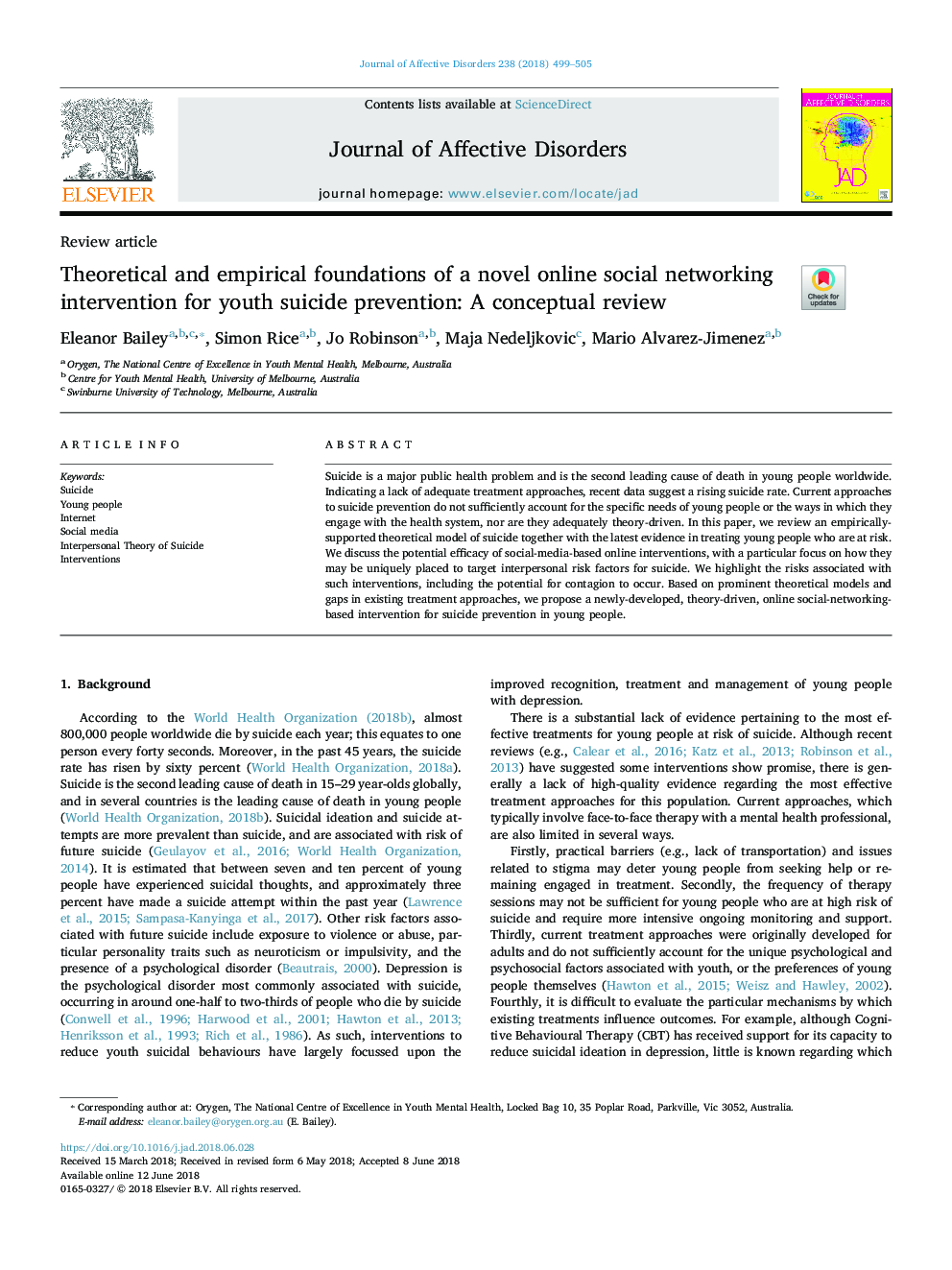| Article ID | Journal | Published Year | Pages | File Type |
|---|---|---|---|---|
| 8815312 | Journal of Affective Disorders | 2018 | 7 Pages |
Abstract
Suicide is a major public health problem and is the second leading cause of death in young people worldwide. Indicating a lack of adequate treatment approaches, recent data suggest a rising suicide rate. Current approaches to suicide prevention do not sufficiently account for the specific needs of young people or the ways in which they engage with the health system, nor are they adequately theory-driven. In this paper, we review an empirically-supported theoretical model of suicide together with the latest evidence in treating young people who are at risk. We discuss the potential efficacy of social-media-based online interventions, with a particular focus on how they may be uniquely placed to target interpersonal risk factors for suicide. We highlight the risks associated with such interventions, including the potential for contagion to occur. Based on prominent theoretical models and gaps in existing treatment approaches, we propose a newly-developed, theory-driven, online social-networking-based intervention for suicide prevention in young people.
Related Topics
Health Sciences
Medicine and Dentistry
Psychiatry and Mental Health
Authors
Eleanor Bailey, Simon Rice, Jo Robinson, Maja Nedeljkovic, Mario Alvarez-Jimenez,
